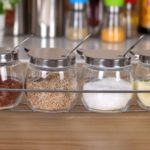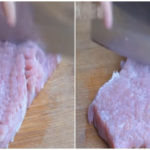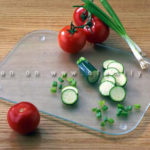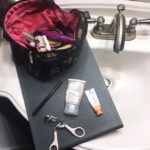A cutting board is an essential kitchen tool for every family, used to prepare and cut food. There are different versions of cutting boards with various designs, shapes, and materials.
However, many people may be surprised to learn that they have been using it incorrectly. Even experienced housewives may not be aware of the purpose of the large hole present on the cutting board.
Why is there always a hole in the cutting board?
A standard cutting board always has a hole on the edge. Its purpose is not only for hanging or holding ease. In fact, this special design serves a completely different purpose.
When cutting food, especially into small pieces, you may encounter difficulties in transferring the final product to a plate or bowl. The food is prone to falling out, requiring additional time for cleaning. If you use your hands, especially with cooked food, the risk of bacterial contamination is high, not to mention the lack of hygiene.
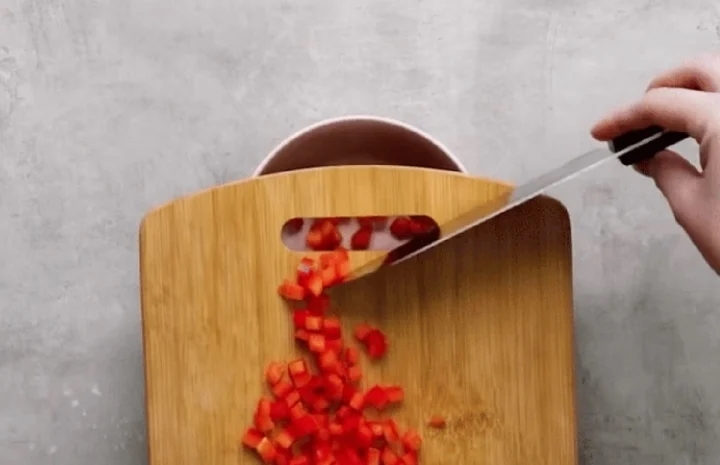
The hole on the cutting board allows for easier transfer of freshly cut food.
To use it correctly, you simply use the knife to cut the food and then push it through the hole to easily transfer it to the plate or bowl below. This method is particularly effective for cutting foods into small pieces like pomegranate seeds or minced meat.
However, if you use the hole on the cutting board for this purpose, you should remember to clean this area thoroughly when cleaning the board to avoid dirt and mold buildup, as it can pose risks.
Notes when using a cutting board
– Soak the cutting board after purchase
Soaking the cutting board after purchase not only cleans the surface but also provides the board with sufficient moisture, preventing excessive water absorption or cracking during use.
Method: Soak the cutting board in a saltwater solution with a ratio of 200g salt to 1 liter of water for 1 day, then let the board dry completely before using.
– Clean the cutting board after use
Cleaning the wooden cutting board after use is one of the ways to make it more durable.
You can use hot water, salt, baking soda combined with vinegar, or use lemon to clean the wooden cutting board after use. Store the cutting board in a cool place and avoid direct sunlight.
– Use separate cutting boards for raw and cooked foods
Raw foods such as meat and fish can contain harmful bacteria, so using the same cutting board for raw and cooked foods can allow bacteria from the board to transfer to the cooked food, compromising food safety.
– Replace the cutting board when necessary
After a period of use, the wooden cutting board may have scratches from cutting and chopping, which provide favorable conditions for bacteria to grow and develop due to leftover food residues. Therefore, it is advisable to replace the cutting board every 7 to 8 months or when the board has too many cuts and scratches.
Source: VTC.vn
8 Common Mistakes People Make with Cutting Boards
Are you using your cutting board correctly? Many Vietnamese households rely on cutting boards in their kitchen, but not everyone knows how to use them properly, especially when it comes to wooden cutting boards. Check out these 8 mistakes to avoid when using a cutting board to ensure both hygiene and safety for everyone in your family.


























